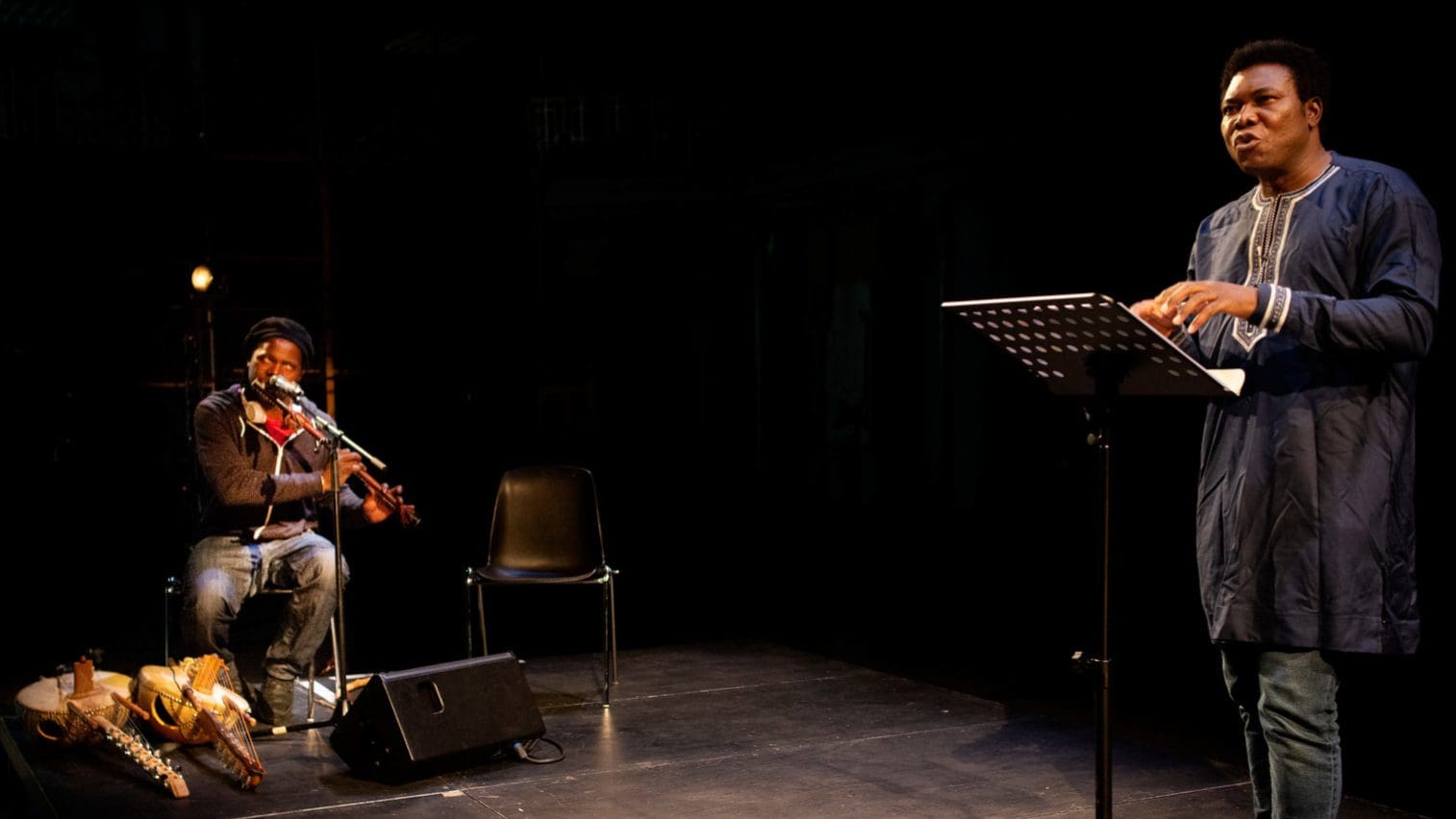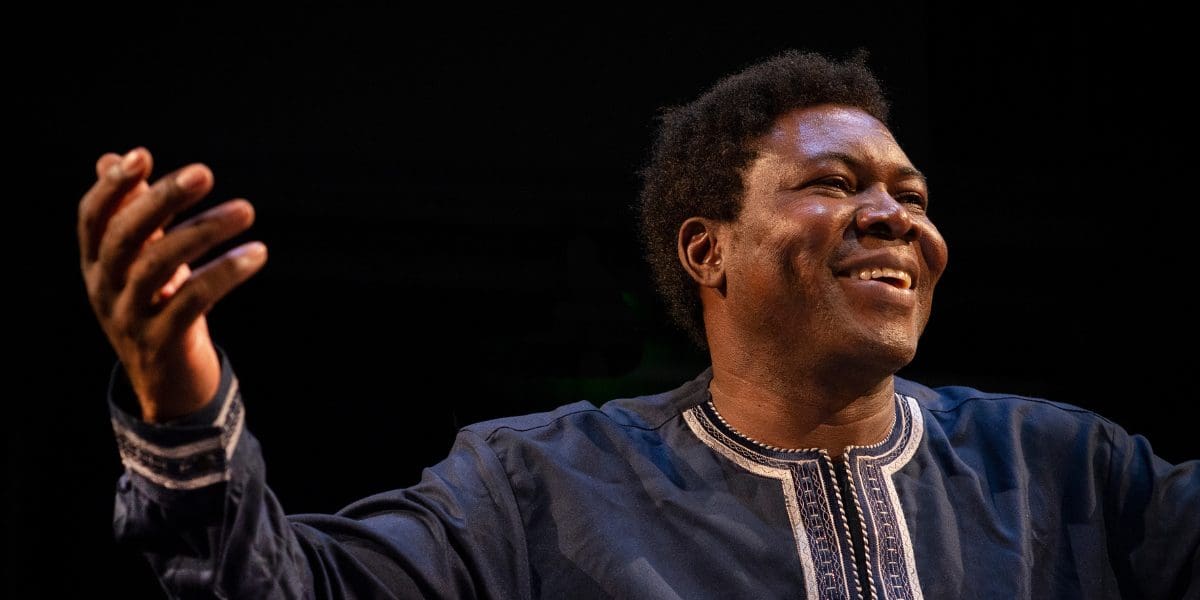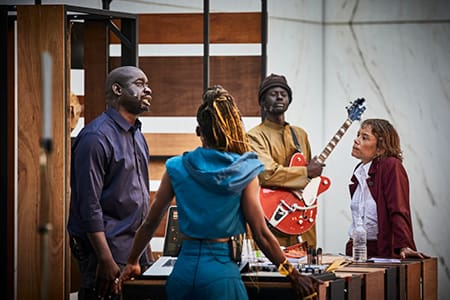
Felwine Sarr, Anne-Marie Bryan Distinguished Professor of Romance Studies at Duke, has been described in various biographies as a public intellectual, humanist, philosopher, economist, musician, playwright and poet. In 2021, he was named among Time Magazine’s 100 most influential people for his work to restitute African and Asian artworks to their countries of origin.
A native of Senegal, where he taught at the University of Gaston-Berger in Saint Louis, Senegal, Sarr has been at Duke since 2020. His face and his distinguished work will soon become more familiar to the community with the production of two of his plays by Duke Performances.
Traces, Address to African Nations (Sept. 17) looks at the history of Africa through a new lens, exploring the notion that Africa no longer has to be defined by colonialism, but can walk on the path it chooses for itself.
Liberté: I Will Have Inhabited Your Dream Until the Last Evening (Oct. 1) weaves stories and songs, images and sounds to show us a luminous world. The text is based on the works of writers, including Sarr, who chose writing as the art of resistance.
A concert with Felwine Sarr and violinist Gabriel Richard will be presented next spring.

The plays were brought to the attention of Duke Performances by Anne-Gaëlle Saliot, Director of Duke’s Center for French and Francophone Studies and Sarr’s colleague in Romance Studies. She had seen both productions in Europe in 2021 and was struck by their power and lyricism. Both plays were selected for the acclaimed festival de théâtre d’Avignon and are part of a U.S. tour co-organized by the Cultural Services of the French Embassy in the U.S., the French Institute-Alliance Française (fi:af) in New York, Duke University, Georgia State University, and Princeton University.
Saliot admires Sarr’s holistic approach to his multidisciplinary career. “I see Felwine as someone who wants to open up boundaries and decompartmentalize thought, whether he is working in poetry, theater, essays or civic engagement. I sense that writing plays and researching economic policy are equally as important to him as the work he did for the restoration of African Art.”
Saliot is referring to the work of Sarr and French art historian Bénédicte Savoy who were asked by President Macron of France to investigate African art and artefacts in French state-owned museums. Their “Sarr-Savoy Report” on the restitution of African cultural heritage was published in November 2018 and is now being used by museums and institutions around the world to reconsider how they present or return material collected through the legacy of colonialism.
That report not only earned Sarr the accolade of being among Time Magazine’s 100 most influential people of 2021, but also the third most influential person in the contemporary art world in 2020 by ArtReview.
Sarr feels a special responsibility to share his philosophy with a younger African generation, emboldening them to build a new vision of post-colonial Africa. And having his work shown in America opens up new horizons.
“For me, my plays being performed at Duke present the possibility to share with American students and a greater audience the desire of emancipation, of building one’s own world and opening a utopian consciousness for the upcoming times,” says Sarr.



